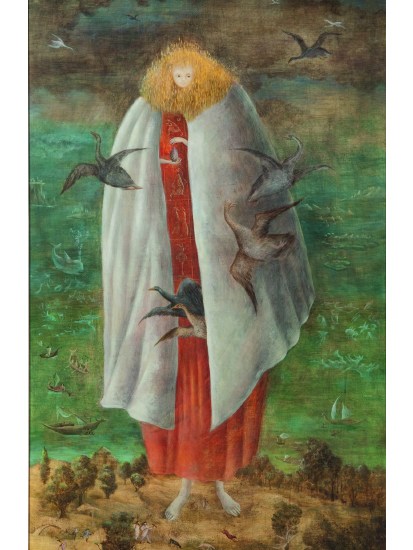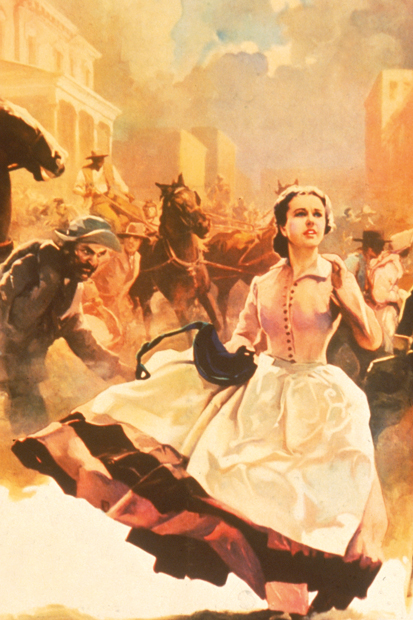Leonora Carrington is one of those jack-in-the-boxes who languish forgotten in the cultural toy cupboard and then pop up every few years to a small flurry of excitement. Born in 1917, the child of a rich Lancastrian industrialist, she ran away to Paris to paint and there became the lover of Max Ernst. She lived at the heart of the Surrealist group, fleeing war-torn Europe with a gaggle of artists to sail to New York, where she kept company with Peggy Guggenheim, Dalí, André Breton, Marcel Duchamp et al. Raven-haired and chain-smoking, she spent time in a Spanish lunatic asylum, married a Mexican, painted and wrote. There were lovers, a second husband — this one a Hungarian photographer — children and a menagerie of animals. She lived in Mexico and died only in 2011. A show of her work is on view at Tate Liverpool until 31 May.
It would be hard to make the life of such a colourful character boring, but Elena Poniatowska has managed it. It may be the fault of the medium. Fictionalised biography seldom produces an author’s finest work, as anyone who has lumbered through Joyce Carol Oates’s dire Blonde, about Marilyn Monroe, will attest. Why an editor didn’t point this out to the current author is puzzling. Poniatowska is an esteemed literary presence in Mexico, now in her eighties. Like Doris Lessing, she began life on one continent and has made a career in another; both women are also well known as powerful feminists. Perhaps, as Lessing also was, she is not an easy person with whom to disagree. Either that, or she has such great personal magnetism that she managed to bamboozle her publisher into believing this book would work.
The dialogue is excruciating. No character has a voice distinct from another and all conform absurdly to type: Surrealists talk about Surrealism, Mexicans talk about Mexico. ‘Man Ray takes himself too seriously; Marcel Duchamp is much easier to deal with,’ Leonora tells her husband. To Max Ernst she says things like: ‘You and I. . . I don’t know what we are. Is there anything between us?’
On the other hand, the descriptive passages make Fifty Shades of Grey seem like A la Recherche du Temps Perdu:
Leonora possesses powers that render her capable of leading you even over the precipice; she is the light, the true flower of dawn. She comes from a limitless infinity; she was lost and rediscovered herself; abandoned her body and now radiates a light, an energy, a halo.
The question is, does Leonora Carrington deserve better? The life is certainly of interest. As for the personality, Poniatowska knew her subject for more than 50 years, so we must assume her portrait to be faithful. On this evidence, she was a nightmare: self-centred to the point of lunacy, humourless, batty and rude. Her short stories are curious and interesting and her paintings have an eerie, whimsical menace. But I fancy that her reputation is better served as an exotic footnote than at centre stage.
Got something to add? Join the discussion and comment below.
Get 10 issues for just $10
Subscribe to The Spectator Australia today for the next 10 magazine issues, plus full online access, for just $10.
Available from the Spectator Bookshop, £11.69 Tel: 08430 600033
You might disagree with half of it, but you’ll enjoy reading all of it. Try your first month for free, then just $2 a week for the remainder of your first year.














Comments
Don't miss out
Join the conversation with other Spectator Australia readers. Subscribe to leave a comment.
SUBSCRIBEAlready a subscriber? Log in